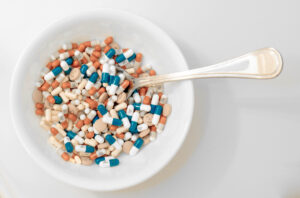
Only one new entry made its way into our top ten most read articles in July—Pigott et al’s re-analysis of patient-level data from the STAR*D study, which reached seventh place in the top ten despite its publication towards the end of the month.
STAR*D re-analysis
The Sequenced Treatment Alternatives to Relieve Depression (STAR*D) study was a major trial in the treatment of depression, funded by the US National Institute of Mental Health, the initial results of which were first reported in 2006. The study provided up to four antidepressant treatments per patient and was intended to provide guidance on the selection of the best next-level treatment option for patients who did not gain sufficient relief from their initial (and subsequent) treatments. In their new re-analysis of the study, Pigott et al attempt to examine what they describe as “key methodological deviations” from the original study protocol and related publications, and the impact of these on the reported outcomes. Their re-analysis was conducted following the guidelines of the Restoring Invisible and Abandoned Trials (RIAT) initiative and used the trial’s patient-level dataset and followed the analysis outlined in the original protocol.
According to the authors, the original study investigators did not use the protocol-stipulated Hamilton Rating Scale for Depression (HRSD) to report the cumulative remission and response rates and instead used a non-blinded, clinic-administered assessment. They also point to the inappropriate inclusion in the original analysis of 99 patients who already scored as remitted on the HRSD at the start of the study and 125 who scored as remitted when initiating their next-level treatment. Re-analysing the data without these deviations, Pigott et al report that the cumulative remission rate was approximately half of that originally reported.
Combination drug therapy among US adult users of CNS stimulants
While not a new entry, Moore et al’s study of medical use and combination drug therapy among US adult users of central nervous system stimulants, currently in tenth place, has been featured in our top ten most read articles consistently since its publication in late April. In this cross-sectional analysis using data for prescription drug claims for US adults from a commercial insurance claims database, the researchers examined patterns of medical use of amphetamine and methylphenidate stimulant drugs. Among those patients using these Schedule II stimulants during 2020, the researchers found that 45.5% combined use with one or more additional CNS active drugs for a median of 213 treatment days, while 24.3% used two or more additional CNS-active drugs for a median of 182 days. The authors conclude by expressing concern about the lack of approved indications and limited clinical trial assessment of these multidrug combinations.
Below are the top ten most-read papers in BMJ Open during July 2023: